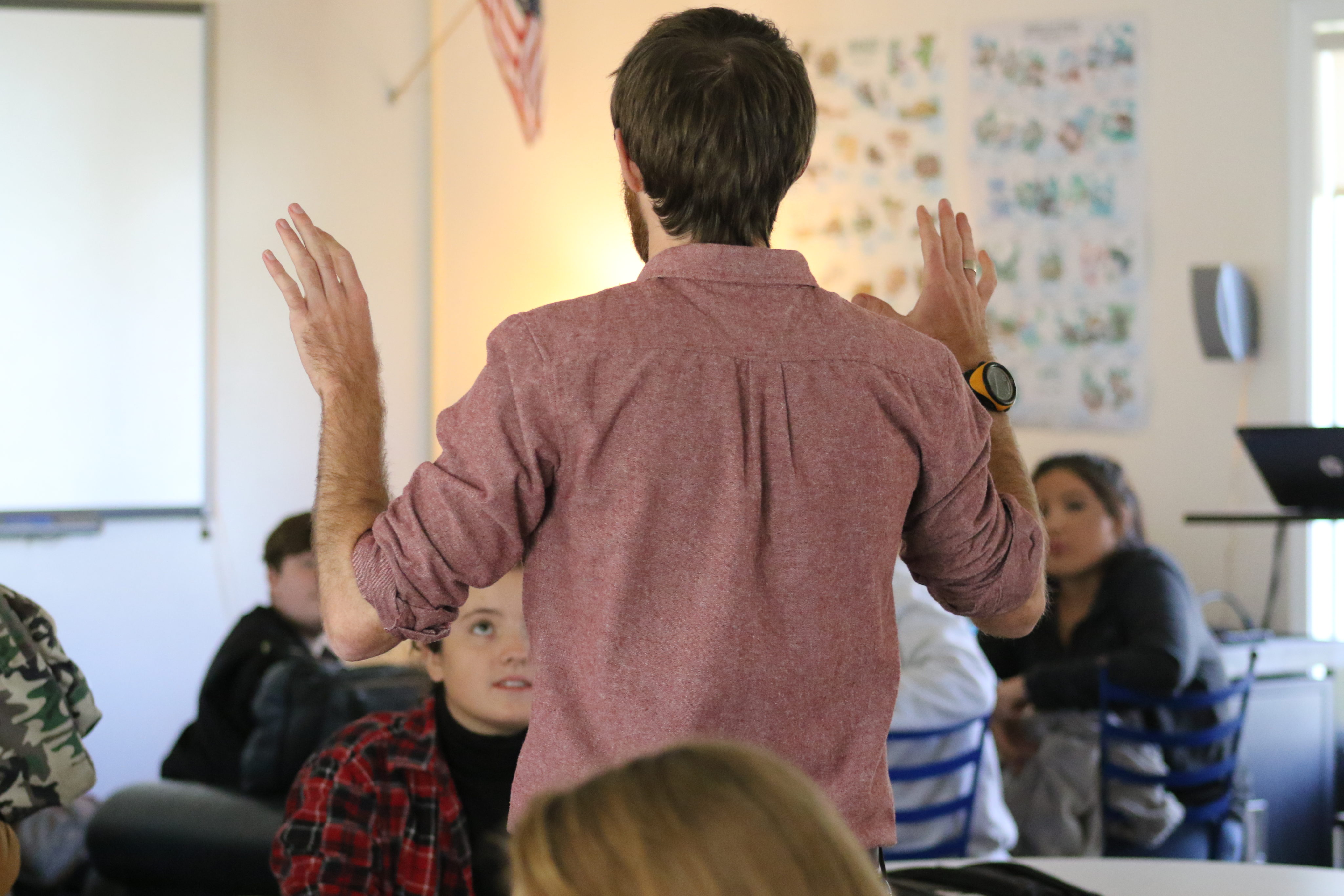

From the Blue Ridge Range to the Outer Banks, schoolhouses sit shuttered, no laughter in hallways, no sneakers squeaking on gym floors, no musical rehearsals in auditoriums. And yet, while a contagious virus has buildings locked, educators have rallied to keep schooling going through a difficult period in students’ lives as well as their own.
As mandated by Gov. Roy Cooper, North Carolina public schools have pivoted from a two-week extended spring break to a statewide shutdown until at least May 15. Here are the reflections of two teachers that capture the meaning of the moment and the mixture of professionalism and personal concern that educators bring to their relationships with students.
Latresa Phillips, a Robbinsville Middle School teacher, is quoted at length in The Bitter Southerner, an online magazine, which lifted up voices in Clay, Cherokee, Graham, and Swain counties. She tells of her experiences, some heart-breaking, in making phone calls to parents to arrange breakfast and lunch services for students who need the meals they usually get at school. Then she describes how she sees her multiple roles in addition to classroom instructor:
“These are your children. You are more than an educator. You are a mentor, a nurse, a listening ear, a caregiver, a disciplinarian, and a safe place for many children to land. You are a voice of reason in a community seeking answers, help, guidance.”
Dawn Gilchrist, who teaches English at Jackson Community School, recently took part in an online discussion with state Reps. Ashton Clemmons and Graig Meyer. Gilchrist, who is the 2020 Burroughs Wellcome Fund western region teacher of the year, followed up in writing to Meyer, who in turn read this segment to UNC students in my Southern Politics class:
“If distance learning is to be the primary way students are educated in the next weeks and months, our population, which is mobile and uncertain in the best of times, will receive far less than students with necessary resources. Although packets, even creative packets, will have to suffice, without a human face or voice behind them, they are to interactive learning what a one-dimensional picture of a classroom is to an actual classroom — without vitality or human warmth.”
There is, of course, no good time for a pandemic, but the current crisis has arrived at what may still be an inflection point in education policy in North Carolina. Eleven months ago, red-clad teachers marched up Fayetteville Street to the state Capitol to call not only for higher pay but also sturdier funding of schools. In January, Superior Court Judge David Lee, drawing on an independent study of North Carolina preK-12 education, ordered the state to address a system that “leaves too many students behind.”
With the General Assembly scheduled to reconvene at the end of this month, the Democratic governor and the Republican legislative majority have yet to break their budgetary deadlock. Cooper vetoed the legislative budget, in part to object to a teacher pay raise he called “paltry,’’ and GOP lawmakers could not override the veto.
Even amid the uncertainty over the length and depth of the impending recession, a strong case exists — in both economic and educational terms — for the state’s leadership to marshal the revenue for sustaining schooling, even if school buildings must remain closed, beyond May 15.
In 55 of the 100 counties, the public school system is the largest employer. As the public health crisis deepened, cafeteria workers continued to prepare meals, and bus drivers delivered them. Superintendents and support staff hustled to assure that students are fed and to offer teachers equipment, instructional materials, and guidance for out-of-classroom instruction.
To prevent learning loss and forestall widening achievement gaps, the state could surely extend instruction into the summer months, additional work time for which teachers and staff should be fairly compensated. All of them are consumers in their communities, too.
The epidemic has not wiped away — in fact may have made more pressing — the basic rationale for elevating the pay of the teaching corps: to attract high-quality instructors to the classroom and to prevent the best from leaving too soon. The creativity and adaptability shown by teachers at this pivotal moment argue perhaps more clearly than a march to the Capitol for North Carolina to pay teachers as the professionals they are.


